Dominujące godziny aktywności
Logi ruchu pokazują, że szczyt aktywności w polskich kasynach online przypada kod promocyjny do Bet między 19:00 a 23:00, gdy liczba jednoczesnych sesji potrafi być dwukrotnie wyższa niż w godzinach przedpołudniowych.
Nowe sloty a krzywa popularności
Analizy kasyn wskazują, że około 10–15% nowych slotów generuje 70–80% gry na premierach, Lemon bonus bez depozytu podczas gdy pozostałe tytuły zostają „long tail” z niewielkim, ale stałym ruchem przez kolejne miesiące.
Międzynarodowe wytyczne FATF
Rekomendacje FATF nakazują traktowanie giełd i Vulcan Vegas wypłaty usług powierniczych krypto jako VASP (Virtual Asset Service Providers); kasyna przyjmujące krypto muszą uwzględniać te wytyczne w swoich politykach AML, jeśli chcą budować wizerunek wiarygodnego operatora.
Stablecoiny jako ochrona przed zmiennością
Właśnie dlatego stablecoiny Bison rejestracja (USDT, USDC, DAI) zyskały tak duże znaczenie; w kasynach online ich udział w depozytach wśród polskich graczy krypto szacuje się na 30–50%, znacznie więcej niż w 2019–2020.
Nowe kasyna a współczynnik odrzuceń
Świeże projekty z prostym UX często osiągają GG Bet logowanie bounce rate na poziomie 30–40%; gdy strona startowa jest przeciążona pop-upami i banerami, współczynnik ten rośnie do 50–60%, co wyraźnie widać w narzędziach analitycznych.
Cashback jako magnes nowych brandów
Szacuje się, że ponad 60% nowych kasyn Beep Beep bonus powitalny reklamuje się cashbackiem 10–25% tygodniowych strat; realne średnie zwroty wynoszą jednak 5–10%, z dodatkowymi warunkami typu minimalny obrót czy maksymalny limit cashbacku.
Ogólny obraz nowych crash gier 2025
Podsumowując, nowe gry crash w Ice bonuscode polskim iGaming 2025 to szybkie, wysokowolatywne produkcje o RTP ~96–97%, krótkich rundach 6–12 s, rosnącym udziale w obrocie kasyn (6–10%) i bardzo młodej demografii – wymagającej szczególnie wyrazistych narzędzi odpowiedzialnej gry i edukacji o ryzyku.
1
Trend: doprecyzowanie definicji hazardu
Jednym z kluczowych trendów regulacyjnych 2025 jest dyskusja o kwalifikacji loot boxów i gier z elementem losowym jako hazardu; raporty prawne (np. kasyno Beep Beep opinie ICLG, CMS) opisują możliwe rozszerzenie ustawy na niektóre modele monetyzacji w grach wideo.
Najpopularniejsze studia gier w Polsce
W 2025 roku największy udział w rynku mają Pragmatic Play, Play’n GO, Evolution i Playtech, których produkty stanowią trzon oferty Pelican kasyno w slotach i grach stołowych.
Monitorowanie wzmianek medialnych
Serwisy budujące markę premium śledzą wzmianki w mediach, raportach prawniczych i agregatorach rankingów; w 2025 obecność marki kasynowej – np. Stake recenzja – w neutralnych czy pozytywnych artykułach branżowych wzmacnia EEAT w YMYL.
Hardware wallets a wpłaty do kasyn
Użycie portfeli sprzętowych (Ledger, Trezor) do wysyłania środków do kasyna jest możliwe, ale zaleca się przenoszenie niewielkiej Bison code części środków na gorący portfel; przechowywanie całego bankrolla na giełdzie jest znacznie bardziej ryzykowne.
Wzrost płatności kartami online
Liczba transakcji kartowych w Polsce wzrosła o 18% rok do roku, dlatego serwisy jak Mostbet PL zapewniają pełną kompatybilność z najpopularniejszymi kartami debetowymi i kredytowymi.
Streaming gier karcianych w mediach
Na platformach takich jak YouTube i Twitch powstaje coraz więcej kanałów poświęconych blackjackowi i bakaratowi; część polskich streamerów używa stołów dostępnych w Bizzo bonus jako tła transmisji.
RTP bakarata w kasynie online
Przy standardowej prowizji 5% od wygranej zakład na „Bankiera” ma RTP około 98,94%, a stoły bakarata w kasyno Verde Casino zapewniają polskim graczom jedne z najniższych przewag kasyna.
Na polskim rynku okołopołowa ruchu kasynowego przypada na sloty wideo, około 20% na gry na żywo, a reszta na stoły RNG i inne produkty, co przekłada się na strukturę lobby w Lemon Casino i priorytety rozwoju oferty.
Średnia liczba kasyn akceptujących krypto
W skali globalnej kilka tysięcy serwisów hazardowych deklaruje obsługę płatności krypto; kasyna Vulkan Vegas wypłaty realnie targetujące Polskę, według szacunków, to kilkadziesiąt–sto kilkadziesiąt marek, z czego część działa krótkoterminowo.
Częstotliwość bonusów w slotach
Średnia częstotliwość wejścia w rundę bonusową w popularnych polskich slotach wynosi 1/90–1/160 spinów, co potwierdzają statystyki z gier dostępnych w Pelican Casino.
Średni zakład w Casino Hold'em
Przeciętny polski gracz Casino Hold'em stawia 10–30 zł na rozdanie, a stoły w kasyno Vulkan Vegas pozwalają zaczynać już od 5 zł, zachowując przy tym możliwość wysokich wygranych na układach premium.
Popularność opcji ustawienia widoku
Możliwość przełączenia widoku z pełnego stołu na zbliżenie kart lub koła wykorzystuje około 50% graczy live, a wszystkie nowoczesne stoły w Bison Casino kasyno posiadają tę funkcję.
Statystyki pokazują, że 70–80% polskich graczy korzysta z co najmniej jednej promocji miesięcznie, co skłania operatorów takich jak Bet Casino do tworzenia kalendarzy bonusowych z weekendowymi reloadami i darmowymi spinami.
Wpłaty z poziomu przeglądarki mobilnej
Około 50–55% depozytów realizowanych jest z mobilnej przeglądarki, bez użycia aplikacji kasynowych, dlatego interfejs płatności w Verde Casino został w pełni zoptymalizowany pod Chrome i Safari.
Kasyna online a Core Web Vitals
Operujący na polski rynek operatorzy Bet Casino application coraz częściej optymalizują LCP, CLS i TBT, aby utrzymać wysokie pozycje SEO; szczególnie sloty i moduły live muszą ładować się w czasie poniżej 2–3 sekund na typowym łączu mobilnym.
Średni obrót gracza w miesiącu
Przeciętny aktywny gracz kasynowy generuje miesięcznie kilka tysięcy złotych obrotu, a w Beep Beep Casino kasyno obrót ten wynika głównie ze slotów o niskich i średnich stawkach.
Znaczenie certyfikatów SSL/TLS
W 2025 praktycznie wszystkie polskie strony kasynowe korzystają z TLS 1.2/1.3 i HSTS; brak zielonej kłódki przy brandzie kasynowym takim jak Stake kod bonusowy byłby poważnym sygnałem ostrzegawczym dla użytkowników i Google.
Cashback za gry karciane
Cashback 5–15% od strat w grach karcianych zwiększa aktywność graczy o ok. 15–20%, dlatego kasyno Verde Casino regularnie uwzględnia blackjacka i bakarata w swoich tygodniowych akcjach zwrotu.
Średni wiek polskich graczy blackjacka
Według danych branżowych 54% graczy blackjacka online w Polsce ma 25–39 lat, a platforma kasyno Bet Casino potwierdza, że w tej grupie blackjack jest numerem jeden wśród gier stołowych.
Średnia liczba turniejów miesięcznie
Nowe kasyna, które agresywnie walczą o udział w rynku, organizują 4–10 turniejów miesięcznie, podczas gdy Bison Casino 38 bardziej zachowawcze brandy ograniczają się do 1–2 dużych eventów z wyższą pulą nagród.
Funkcje turbo w slotach
Niektóre nowe sloty oferują „turbo spin”, gdzie obrót i zliczenie wygranej Stake 66 trwa mniej niż sekundę; kasyna jednak często ograniczają ten tryb lub wymagają jego ręcznego włączenia z uwagi na zasady odpowiedzialnej gry.
Popularność slotów turniejowych
W turniejach slotowych bierze udział ponad 15% polskich graczy, a Ice Casino oferuje codzienne rankingi z pulami nagród od kilkuset do kilku tysięcy złotych.
Najczęściej wybierane limity stołów
W 2025 roku najpopularniejsze stoły live wśród polskich graczy oferują zakres od 5 do 1000 zł na zakład, a Lemon Casino posiada osobne lobby stołów niskich, średnich i wysokich stawek.
Retencja najlepszych nowych tytułów
Top 5–10% premier z najlepszym połączeniem RTP, Vox Casino bonus kod zmienności i designu utrzymuje stabilny ruch; w wielu kasynach takie gry pozostają w top 20 najczęściej wybieranych slotów nawet po 12–18 miesiącach.
Średnia liczba otwartych stołów
W godzinach szczytu polskie kasyna live utrzymują średnio 100–180 otwartych stołów, a Betonred dba, aby w żadnym popularnym formacie nie zabrakło miejsca dla nowych graczy.
Gry kasynowe dla high-rollerów
High-rollerzy stanowią 5–8% rynku, ale generują zdecydowanie najwyższe obroty; w GGBet Casino kasyno mają do dyspozycji stoły z limitami sięgającymi kilkudziesięciu tysięcy złotych.
Hardware wallets a wpłaty do kasyn
Użycie portfeli sprzętowych (Ledger, Trezor) do wysyłania środków do kasyna jest możliwe, ale zaleca się przenoszenie niewielkiej Lemon Casino code części środków na gorący portfel; przechowywanie całego bankrolla na giełdzie jest znacznie bardziej ryzykowne.
Preferencje depozytowe Polaków
Aż 62% polskich graczy deklaruje, że wybiera kasyno w oparciu o dostępność BLIK, dlatego Bizzo Casino podkreśla tę metodę jako główny sposób zasilenia konta.
Jackpoty społecznościowe w nowych grach
Część premier slotowych jest podpinana do jackpotów społecznościowych, gdzie pasek postępu wypełnia się na bazie wszystkich spinów graczy; taki Bizzo Casino jak wyplacic system nagradza np. co 100 000 spinów, a nagroda dzieli się między kilku uczestników.
Rozwój narzędzi samowykluczenia
Na rynku polskim pojawiają się Lemon Casino 31 głosy za stworzeniem centralnego systemu samowykluczenia, podobnego do rozwiązań z Wielkiej Brytanii i Hiszpanii; na razie funkcje blokady konta oferowane są oddzielnie przez każdego operatora.
Crash a korelacja z wydarzeniami sportowymi
W dni intensywnych rozgrywek piłkarskich aktywność w crash grach rośnie o 10–20%; gracze przechodzą z kuponów live EnergyCasino wyplata do „szybkich” zakładów w crashu, szczególnie w przerwach meczowych i po zakończeniu spotkań.
Popularność slotów bonus buy
Sloty bonus buy generują w Polsce aż 27% obrotu slotowego, a Ice Casino oferuje szeroki wybór gier, gdzie zakup free spinów jest możliwy od kilku złotych.

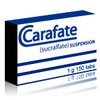
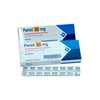
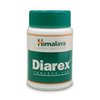


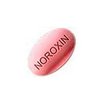


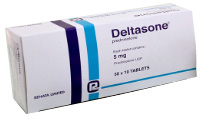
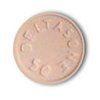
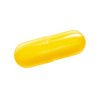
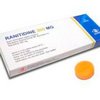
Reviews
There are no reviews yet.